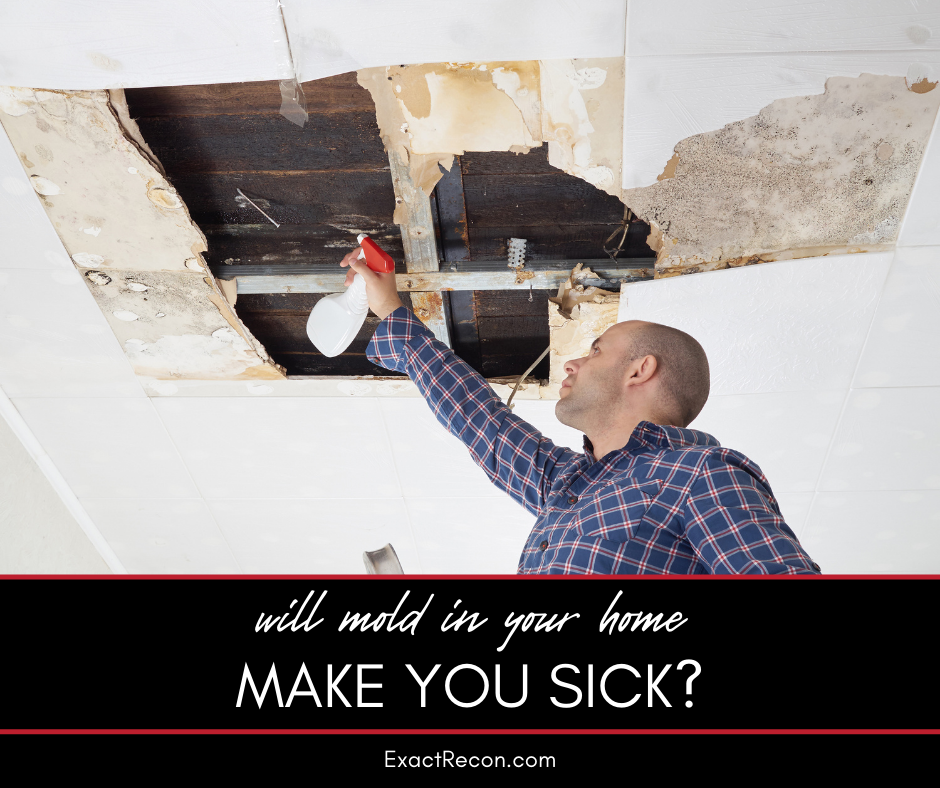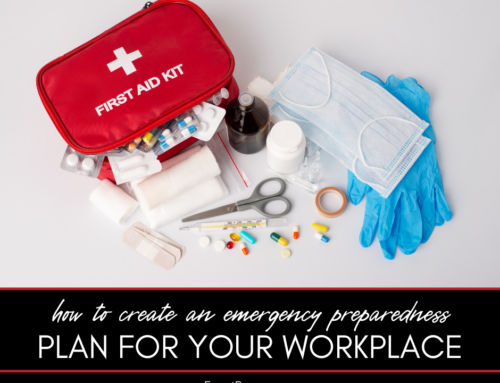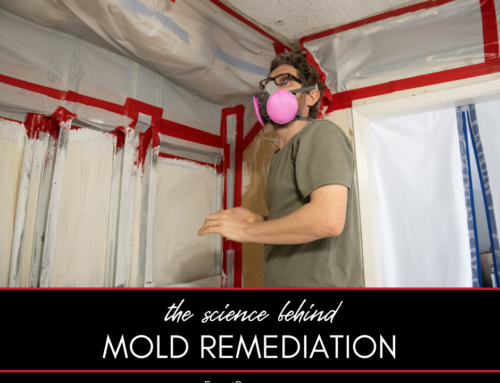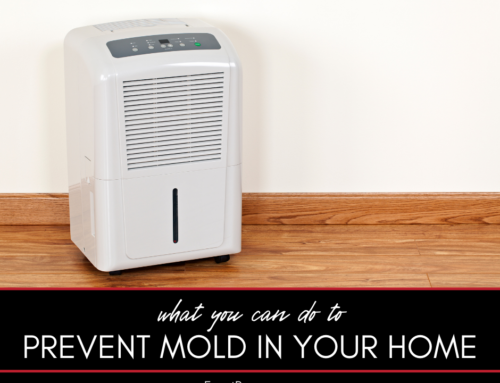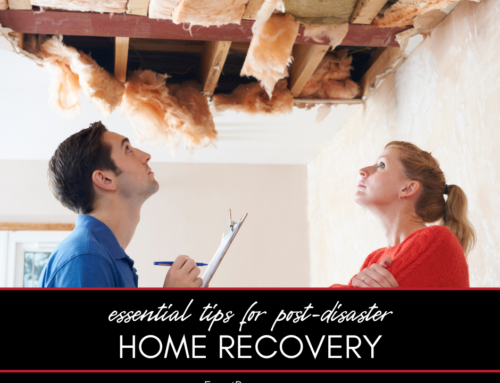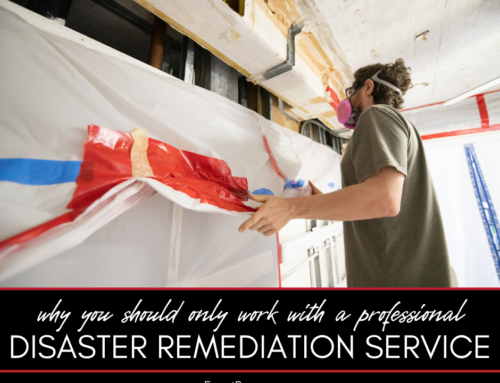After a disaster, homeowners must contend with many challenges, including the unwelcome guest that often follows: mold. You might wonder, “Will mold in my home make me sick?” This guide is here to provide answers to your questions.
Will Mold in Your Home Make You Sick?
In this guide, we’ll cover the potential health risks of mold, including the types of illnesses it can cause. We’ll also discuss how to recognize mold and how to protect your family from its harmful effects. We’ll be covering these main topics:
- What is mold and how does it affect health
- Health conditions linked to mold exposure
- How to identify mold in your home
- Steps to prevent mold growth
- Remediation: How professionals can help
Here’s a closer look at each.
What Is Mold and How Does It Affect Health?
Mold is a type of fungi that grows in warm, damp, and humid conditions. It reproduces by spreading microscopic spores that can survive harsh conditions. These spores float around in the air and can be inhaled or land on surfaces where they can potentially grow into new mold colonies.
Mold exposure can lead to various health problems. Some people might experience minor symptoms like a stuffy nose, red or itchy eyes, or skin irritation. Others might have more serious reactions such as difficulty breathing or asthma attacks. Those with allergies to molds or with weakened immune systems are at a higher risk of severe reactions. In some rare cases, exposure to certain molds can lead to a serious lung infection.
Related: Why DIY mold remediation may be a bad idea
Health Conditions Linked to Mold Exposure
Exposure to mold can lead to several health conditions. Some of the common symptoms linked to mold exposure include sneezing, runny or stuffy nose, itchy or watery eyes, wheezing, and skin rash. People with mold allergies may have more severe reactions.
Additionally, individuals with chronic respiratory diseases such as asthma might experience severe symptoms when exposed to mold. Long-term exposure to certain molds may lead to serious health conditions like hypersensitivity pneumonitis, a rare immune system disorder that resembles bacterial pneumonia.
How to Identify Mold in Your Home
Identifying mold in your home is crucial in preventing its growth and limiting exposure. Molds can be any color but are often seen as black, white, green, or orange spots. In some cases, molds have a musty odor.
Mold often grows in damp areas. Thus, inspect places in your home that are often wet, such as bathrooms, kitchens, laundry rooms, basements, and around leaks in roofs or pipes. If you’ve recently had a water leak or flood, those areas are at a higher risk for mold growth.
Steps to Prevent Mold Growth
Preventing mold from growing or spreading might be as simple as routinely checking, cleaning, and drying damp areas in your home. Here are some steps to prevent mold growth:
- Control humidity levels in your home.
- Promptly fix leaky roofs, windows, and pipes.
- Thoroughly clean and dry after flooding.
- Ventilate shower, laundry, and cooking areas.
- Use mold-resistant products like mold-resistant drywall or mold-resistant Sheetrock, and mold inhibitors for paints.
Related: How to prepare for Michigan’s tornado season
Remediation: How Professionals Can Help
If you’re dealing with a large mold problem or significant water damage, it may be best to hire a professional mold remediation service. Professionals have the training, experience, and tools to safely handle mold problems of all sizes.
Professional mold remediation involves assessing the extent of the mold infiltration, isolating the contaminated area to prevent further spread, removing the mold using professional-grade biocides and tools, and cleaning up to ensure that all mold and mold spores have been eradicated. Professionals can also help identify and address the source of the moisture problem to prevent future mold growth.
FAQ About Mold Making You Sick
Here are some frequently asked questions about mold and its effects on health. If you don’t see the answers you’re looking for here, please call our office. We’re here to help.
Is mold always visible?
No, mold isn’t always visible. It can grow behind walls or under floors, so a musty smell can often indicate its presence.
Can mold cause long-term health issues?
In some cases, prolonged mold exposure can lead to long-term or even permanent health issues, particularly in people with weakened immune systems.
Related: How to identify and prevent mold growth in your home
Can I clean up mold myself?
Small areas of mold can usually be cleaned by homeowners. However, for larger infestations, it’s recommended to hire a professional.
How can I prevent mold from coming back?
Maintaining good ventilation, controlling humidity, and quickly repairing leaks can help prevent mold from returning.
What does a mold remediation specialist do?
A mold remediation specialist identifies and removes mold, cleans and disinfects areas affected by mold, and takes steps to prevent future mold growth.
Related: What to do about fire damage in your home
Living in a mold-infested home can indeed make you sick. But with the right information and assistance, you can address this problem and make your home safe again. Always remember: When it comes to mold, prevention is the best strategy, but when you find it, swift action is key.
Do You Need a Disaster Remediation Expert in Washtenaw County or Jackson County?
If your home has already been damaged, we can help. Check out our services and call Exact Recon for your free disaster remediation quote today. We offer:

